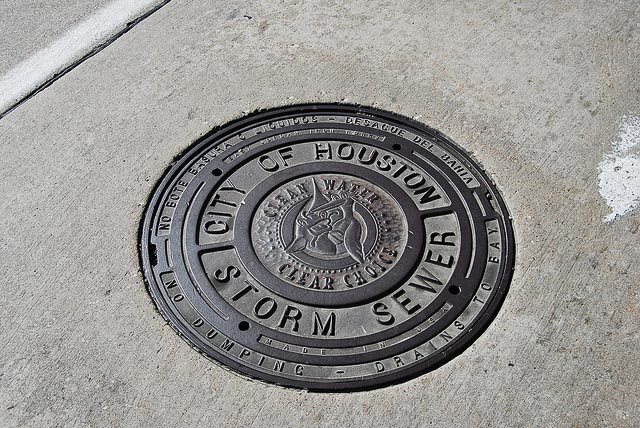While the Urban Edge strives to provide readers with daily news and insights about urban policy, we’re also voracious readers of city news ourselves. As part of a new weekly feature, senior editor Ryan Holeywell and the staff of the Kinder Institute highlight the week’s most interesting articles from around the web about urban policy and city life.
Why Houston’s Politicized Drains Could Be Any City’s Drains
It’s not a sexy issue, but it’s a controversial one. The crusade to fix Houston’s drainage system is taking a front-and-center role in the city’s mayoral contest. But Houston isn't that unique, Next City reports. As the country faces a legacy of deferred spending on infrastructure, drainage and other mundane – yet critical – public works issues could soon take center stage in other municipal contests across the country.
The Backlash to Mexico City's High Line-Style Park
Mexico City officials are planning their own "linear park" designed to address the city's lack of public space. The only problem? Critics say the planned "Corredor Cultural Chapultepec" is actually being built in a neighborhood that's already served by transit, retail and green space, City Lab reports. Others fear that despite the beautiful renderings, the final product will wind up looking more like a shopping mall.
Ohio's New Ethics Strategy: Public Shaming of Politicians
Ohio State Auditor Dave Yost is proposing a creative way of addressing public officials' abuse of power: public shaming. Abuses that are questionable but still legal will now be featured in audit reports, a departure from previous policy, Governing reports. That means even if officials won't face prosecution when they use the public purse like a piggy bank, they may still face political fallout and embarrassment.
The Two Sides of Denver's Real Estate Boom
Just a few years after the recession, Denver's real state market exploded. Today, despite thousands of new apartments coming online, monthly rents have grown at a pace almost unmatched anywhere else in the country. The magazine 5280 reports on the implications of that boom by featuring a student (forced to sleep in his car) and a young investor (who put half a million dollars into a house).
These places banned booze. Now they’re dealing with something far worse
New research from University of Louisville shows that "dry" counties in Kentucky that banned alcohol sales are more likely to have problems with meth, the Washington Post’s Wonkblog reports. "(I)f all counties were to become wet, the total number of meth lab seizures in Kentucky would decline by about 25 percent," the researchers found. The reason, the authors speculate, is that if people are accustomed to buying and selling alcohol illegally, then they're probably more willing to deal illegal drugs too.
The popular Waze navigation app can help drivers save some extra time on their trips. But die-hard users (including this Urban Edge) know that it has a major flaw: it often leads people to make dangerous left turns in the interest of saving time. Waze's software developers are now trying to tweak their algorithm to cut down on those turns, The Atlantic reports. That's good news for safety, since 60 percent of collisions at intersections with traffic lights involve left turns, compared to 4 percent that involve right turns, according to NHTSA data.

